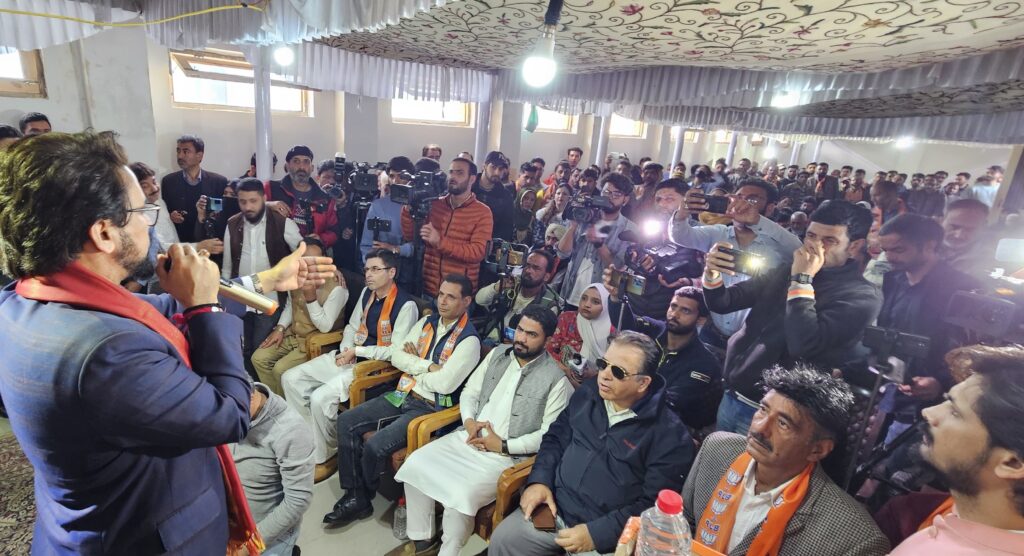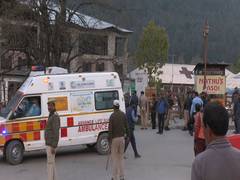‘One Nation, One Election’ is a path-breaking, forward-looking reform: Anurag Thakur
Anurag Thakur bats for ‘One Nation, One Election’ Reform During Visit to Srinagar
Srinagar: Former Union Minister, and Member of Parliament (MP) Anurag Singh Thakur addressed the BJP activists, and media at BJP District office in Srinagar.

Ashok Koul, General Secretary (organization), J&K BJP, Sheikh Salman, District President, Srinagar, Arif Raja, NCM BJP, Altaf Thakur,
Spokesperson, Eng. Aijaz, DDC also accompanied Anurag Thakur on the occasion.
During the interaction, he led in-depth discussion on the benefits of ‘One Nation, One Election’ and political and security situation in Jammu and Kashmir.
Thakur termed the proposed ‘One Nation, One Election’ Bill as a path-breaking and forward-looking reform. He emphasized that holding simultaneous elections across the country would not only conserve critical administrative and financial resources but also help boost the national GDP. He further explained that it would minimize disruptions caused by the repeated imposition of the Model Code of Conduct, enabling uninterrupted governance and implementation of development projects.
In a scathing critique of the opposition, Anurag Thakur highlighted the Congress party’s inconsistent and controversial stances on key national issues such as Article 370, the Citizenship Amendment Act (CAA), the National Register of Citizens (NRC) and the abolition of triple talaq. He also accused Congress of destabilizing democratic institutions in the past by frequently toppling elected governments between 1952 and 1967, thereby disrupting the possibility of unified elections.
“While strongly condemning the terrorist attack in Pahalgam, he reaffirmed that the Modi government upholds a strict zero-tolerance policy toward terrorism and will reciprocate with fierce retaliatory actions.”
He also announced that the Joint Parliamentary Committee on ‘One Nation, One Election’ will begin its outreach and consultations with states starting May 17. The committee will first visit Maharashtra, followed by Uttarakhand, Jammu and Kashmir, Chandigarh, and Punjab. These visits aim to engage with stakeholders from all sectors to ensure a transparent and participatory approach to this significant reform.






